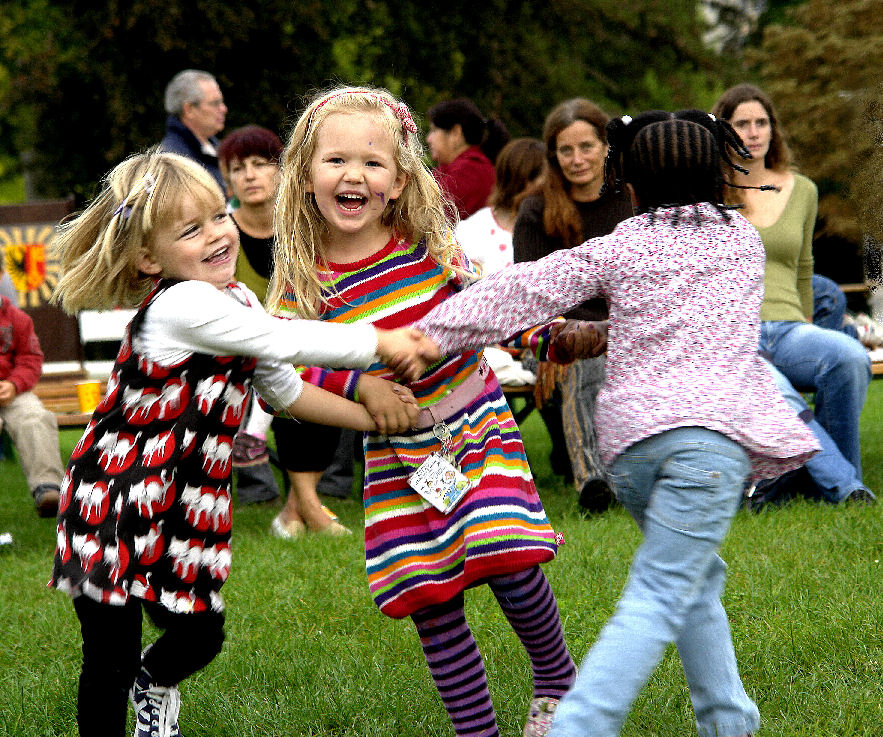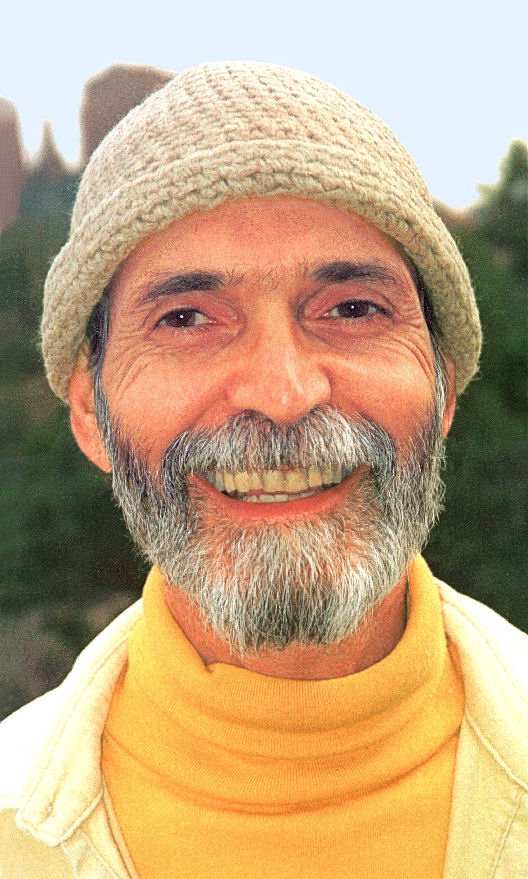Miracle Bhakti Yoga

EXPRESSING
LOVE AS YOUR OWN TRUE
NATURE
Your
practice of Miracle Bhakti Yoga would certainly be influenced by the Course
emphasis on divine Love. Do you understand how much God loves you? Here is what
the Course says:
You cannot understand how much your Father
loves you, for there is no parallel in your experience of the world to help you
understand it. There is nothing on earth with which it can compare, and nothing
you have ever felt apart from Him resembles it ever so faintly.1
There are many meanings that are given to
love, but the various kinds of love with different meanings are not actually
love as it is described in the Course. According to the Course, there is really
only one kind of love and one meaning of love:
The
meaning of love is the meaning God gave to it. Give to it any meaning apart
from His, and it is impossible to understand it. God loves every brother as He
loves you; neither less nor more. He needs them all equally, and so do you.2
God’s Love is
infinite oneness that is beyond full comprehension, yet His divine
Love can be
experienced. You are an expression of God’s Love. Since love is your
true
nature, the Course focuses on how to remove the blocks to your
awareness of the
presence of love. According to the Course, the major way of removing
blocks in
order to reveal love is forgiveness that sees past appearances in order
to see
the love and light behind forms.
Love is your
true nature, but it is clouded over by desires for other
things. Like the
other aspects of Miracle Yoga, Miracle Bhakti Yoga includes forgiveness
expressed as “looking and overlooking.” The “looking” is the
focus on the
Beloved, the longing for two to be one. The “overlooking” has
to do with
the setting aside of the blocks that cloud over your heart’s desire for
your
Beloved. The love that you receive from your Beloved and your
own
response of love gives you the strength to overlook. You
overlook the
thoughts of separation, the thoughts of the ego, and you focus single-mindedly on
looking toward your Beloved with the intention of divine union.
Your looking is
a maintaining of purity of heart and your overlooking is a letting go
of any
blocks to your purity of heart. This looking and overlooking
have an
external and an internal component. The external component of
looking is
the purity of heart that enables you to see your Beloved in the faces
of your
brothers and sisters. The external component of overlooking is the
letting go
of any outer blocks, habitual behavior patterns, that would separate
you from
expressing love to others. The internal component of looking
is the
purity of heart that enables you to contact your Beloved within and the
internal
component of your overlooking is the letting go of any thoughts or
desires that
would disturb your focused inner devotion to your Beloved.
The Course
generally speaks in a philosophical manner that appeals to the
intellect and
not in a heartfelt tone, but the ideas themselves are focused on love.
For
example, miracles as expressions of love are described in intellectual
exactness. Miracles are considered impersonal in the sense that they
are
extensions of love that through the Holy Spirit may touch many lives of
people
you have never met. On the other hand, the actual manifestation of a
miracle is
a highly personal expression simply because each miracle boils down to
the
effect that one heart has upon another.
You can, of
course, express inward devotion to God as part of your Miracle Bhakti
Yoga. In
fact inner direct devotion to God is the cornerstone of traditional
Hindu
bhakti yoga and is to be encouraged. This would include devotion to
both God
and Jesus. A good example of inner devotion is repeating the Name of
God or the
Name of Jesus, called the Jesus Prayer, which is an
expression of
Miracle Raja Yoga, but which is an equally important expression of
Miracle
Bhakti Yoga because of the love aspect of this practice. One of the
chief
ingredients of Miracle Bhakti Yoga is gratitude, explained in the
Course as
follows:
Remembering
the Name of Jesus Christ is to give thanks for
all the gifts that God has given you. And gratitude to God becomes the
way in
which He is remembered, for love cannot be far behind a grateful heart
and
thankful mind. God enters easily, for these are the true conditions for
your
homecoming.3
Gratitude to Jesus is just as important as gratitude to God. Jesus does
not
need your love in the form of gratitude for His own sake, but He wants
your
love for your sake so you may become more receptive to His love and
God’s love.
About this need for gratitude the Course states:
Jesus has led the way. Why would you not be grateful to him? He has
asked for
love, but only that he might give it to you. You do not love yourself.
But in
his eyes your loveliness is so complete and flawless that he sees in it
an
image of his Father. You become the symbol of his Father here on earth.
To you
he looks for hope, because in you he sees no limit and no stain to mar
your
beautiful perfection. In his eyes Christ’s vision shines in perfect
constancy.4
Your belief
system will determine whether you practice the extension of love or
not. The
Course offers a thought system based upon love for you to believe and
use as a
basis for your actions and your teaching. You may not think of yourself
as a
teacher, but your thought system is acted out in the way you live your
life,
and that is your teaching. Others will be influenced by your example,
which is
your teaching. The Course advises that love is the only thing you need
to
teach, but you have to live it to teach it. “Teach only love, for that
is what
you are.”5 When you look at your brother, how you look at him
teaches him
who he is and who you are. If you see him as an ego, you will teach him
he is
an ego and teach yourself that you are an ego. But the Course advises
you to
see every action of your brother as either an expression of love or a call
for
love. This reminds you that all your own actions are expressions of
love or
calls for love.
The
only judgment involved is the Holy Spirit’s one division into two
categories;
one of love, and the other the call for love. You cannot safely make
this
division, for you are much too confused either to recognize love, or to
believe
that everything else is nothing but a call for love.6
Every person
you meet provides you with what the Course calls a “holy encounter.”
You can
find your true Self in this holy encounter, rather than through looking
at
yourself alone.
When you meet anyone, remember it is a
holy encounter. As you see him you will see yourself. As you treat him
you will
treat yourself. As you think of him you will think of yourself. Never
forget
this, for in him you will find yourself or lose yourself. Whenever two
Sons of
God meet, they are given another chance at salvation. Do not leave
anyone
without giving salvation to him and receiving it yourself. For I am
always with
you, in remembrance of you.7
The
The goal of the curriculum, regardless
of the teacher you choose, is “Know thyself.” There is nothing else to
seek.
Everyone is looking for himself and for the power and glory he thinks
he has
lost. Whenever you are with anyone, you have another opportunity to
find them.
Your power and glory are in him because they are yours. The ego tries
to find
them in yourself alone, because it does not know where to look. The
Holy Spirit
teaches you that if you look only at yourself you cannot find yourself,
because
that is not what you are.9
There
The Kingdom cannot be found alone, and
you who are the
Kingdom cannot find yourself alone.10
Love is your
true nature and Identity in the Kingdom and here on earth this is
expressed
through extension. You learn about your true loving Identity in union
with God
and with your brothers through extension. If you extend love to your
brother,
you will discover the love that is within you. In particular the Course
advocates practicing the “holy relationship” as a means of extending
love. In
the holy relationship, you join with another person for a common
purpose. The holy
relationship is considered an exalted expression of love blessed by God.
The holy
relationship consists of two people joining for a common purpose, and
in that
joining the Holy Spirit enters that relationship. Now the specific
aspect of
giving that occurs in the holy relationship will be elaborated upon.
Giving is
an expression of love if it is truly giving. However, if giving is made
to get,
it becomes a transaction, a bargain. If you feel your gift is a
sacrifice, it
cannot be giving. Your thought of sacrifice means you think you should
be
compensated or at least the other person should feel guilty for your
sacrifice.
This kind of giving is a way of controlling the one who receives the
gift.
In contrast to
this is the giving that occurs in the mature holy relationship. The
giving here
is without hooks. You give to your partner and your savior, whom you
love and
from whom you need no return. Giving is done for its own sake. In fact
the
Course clarifies that giving is receiving. In the
world of appearances,
if you give something, you lose it. Consequently, you deprive yourself
of
something and you have less than before your giving. But this is only a
form-related perspective. Actually when you freely give without any
expectation of
return, you receive back just as you have given. The Course goes even
further
to say that giving is in fact the way to keep and not giving is the way
to
lose. You are love and by giving love, you keep your awareness of the
love that
you are. By trying to keep love to yourself, you lose your awareness of
love,
because love is giving.
Love must share itself to be itself. God must share Himself to be Himself. You must share yourself to be yourself. This is how the holy relationship teaches you who you are through your relationship. As you give love to your partner, joining for a common purpose, you receive all the love you give. You realize in this sharing, and in the joy and fulfillment that you feel, that this expression of love frees you to be yourself. This sharing reminds you of the total giving of yourself that you manifested in heaven as a part of the Sonship in oneness with God.
The best example of love as giving is Jesus. He shared Himself with everyone, especially the sick, the poor, and those who had lost hope. When His disciples wanted to keep children away from Him, Jesus instead welcomed them, saying that His followers needed to become like children to enter the Kingdom of God. This can be interpreted to mean His followers must have the trusting faith of a child. Yet it can likewise mean that children can teach seekers much about how to share love wholeheartedly. In the picture below, notice the stark contrast between the children joyfully sharing and the adults sitting in the background.

Giving and
receiving occur simultaneously. The giving that is given in a gift on
the form
level may, of course, not be returned in exactly the same form in which
it was
given. But the giving is actually related to content and therefore has
nothing
to do with a lost form. Even in giving forms, it is your love itself
that you
put into the giving of forms. It is your love that you give that is
returned to
you. Your act of giving, whether it involves form or not, opens you up
to the
joy, peace, and love that are at your core and you realize the immense
value
you have in God’s eyes as His holy Son. Your true worth is revealed to
you with
every gift given without any concern for the gift being given. Your
holy
relationship may not start out with this kind of giving, which is not
really a
giving of a gift after all, but a giving of yourself. Your
unconditional giving
is the direction in which your holy relationship is leading you over
time. The
best gift you can give your partner is the gift of seeing him as the
guiltless
holy Son of God, which at the same time confirms your own guiltlessness
and
that you are the holy Son of God. The love in the giving of yourself
that is
the basis for Miracle Bhakti Yoga is the universal ingredient that
penetrates
all the other aspects of Miracle Yoga.
1.
T-14.IV.8:4-5, p. 281
2.
T-15.V.10:3-6, p. 314
3. M-23.4:5-7,
p. 58
4. M-23.5:1-8, p. 59
5. T-6.I.13:1. p. 94
6. T-14.X.7:1-2, p. 294
7. T-8.III.4:1-8, p. 142
8. W-pI.77.1:4-5, p. 137
9. T-8.III.5:1-7, p. 142
10. T-8.III.5:10-12, 6:1, p. 142
Click
here for "Forgiveness and Awakening"
Memory Walk in the Light:
My Christian Yoga Life as
"A Course in Miracles"
Author:
Donald James
Giacobbe
“The central message of the Course
is forgiveness, and the key to yoga is opening to the divine presence.
As a
teacher of Miracle Yoga based on Course principles, my goal is to live
my life
as an expression of forgiveness and openness to the experience of
Spirit.”
Listen to "Authors's Radio Interview"
Back
to "Home"

